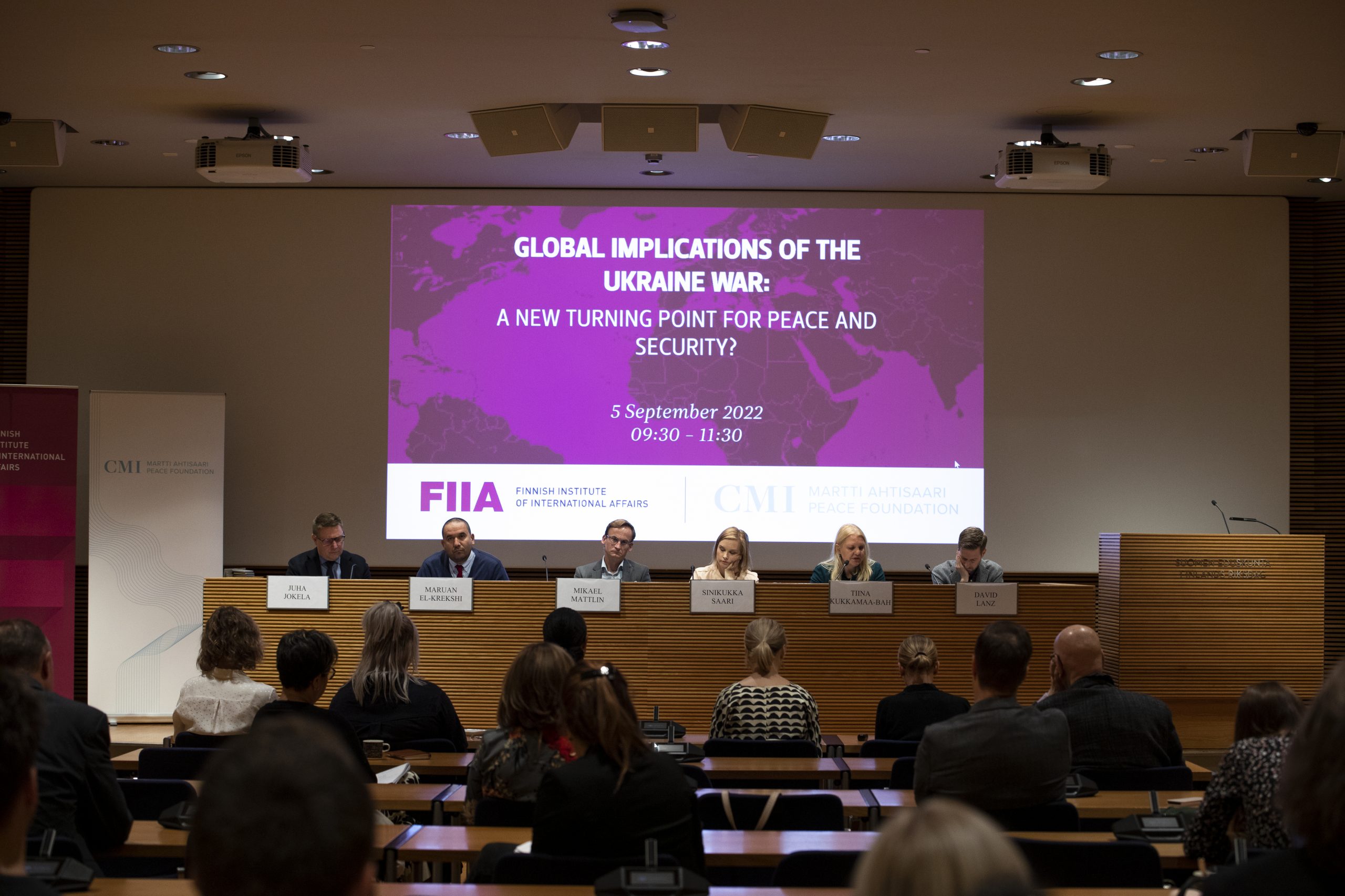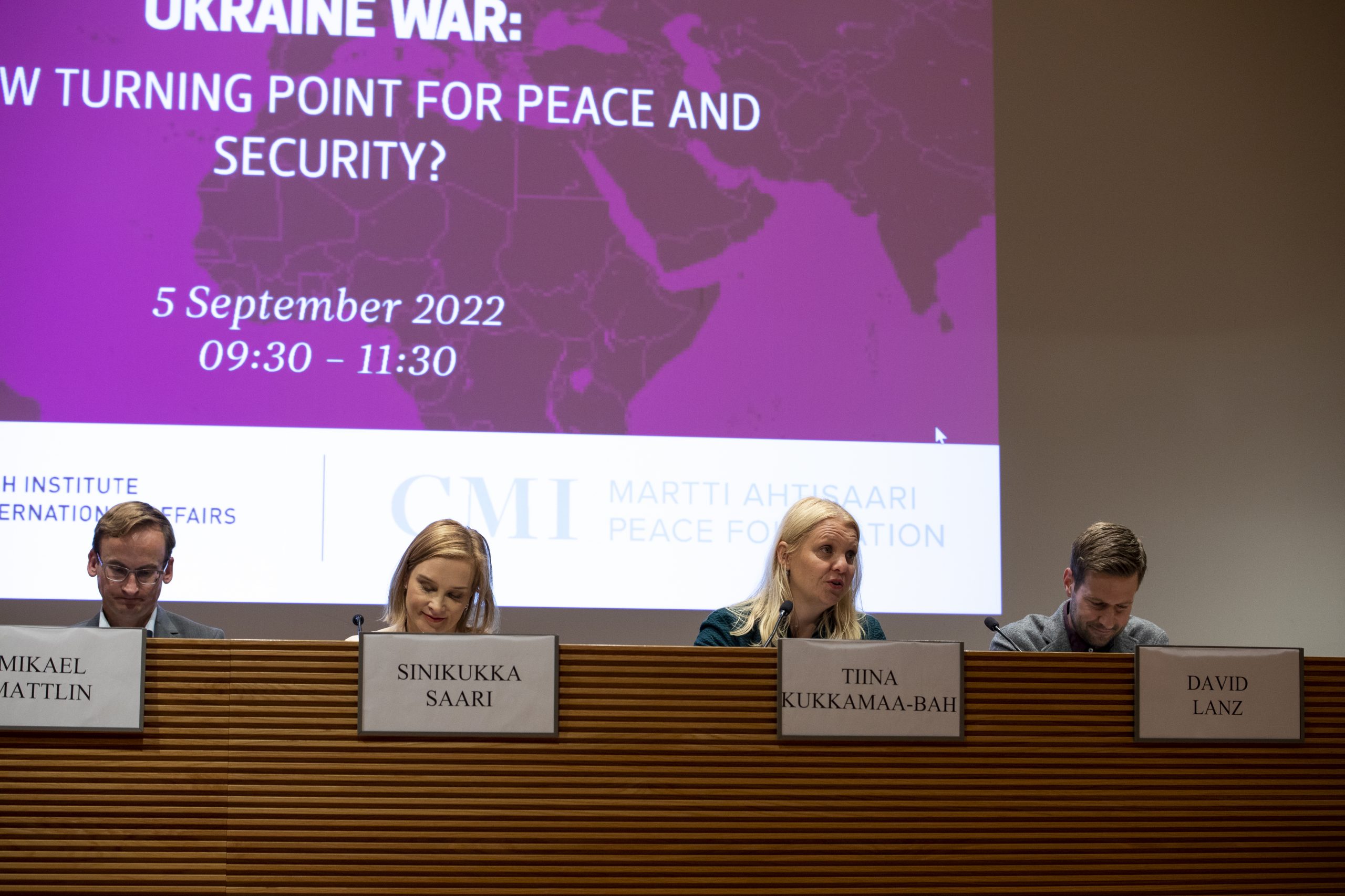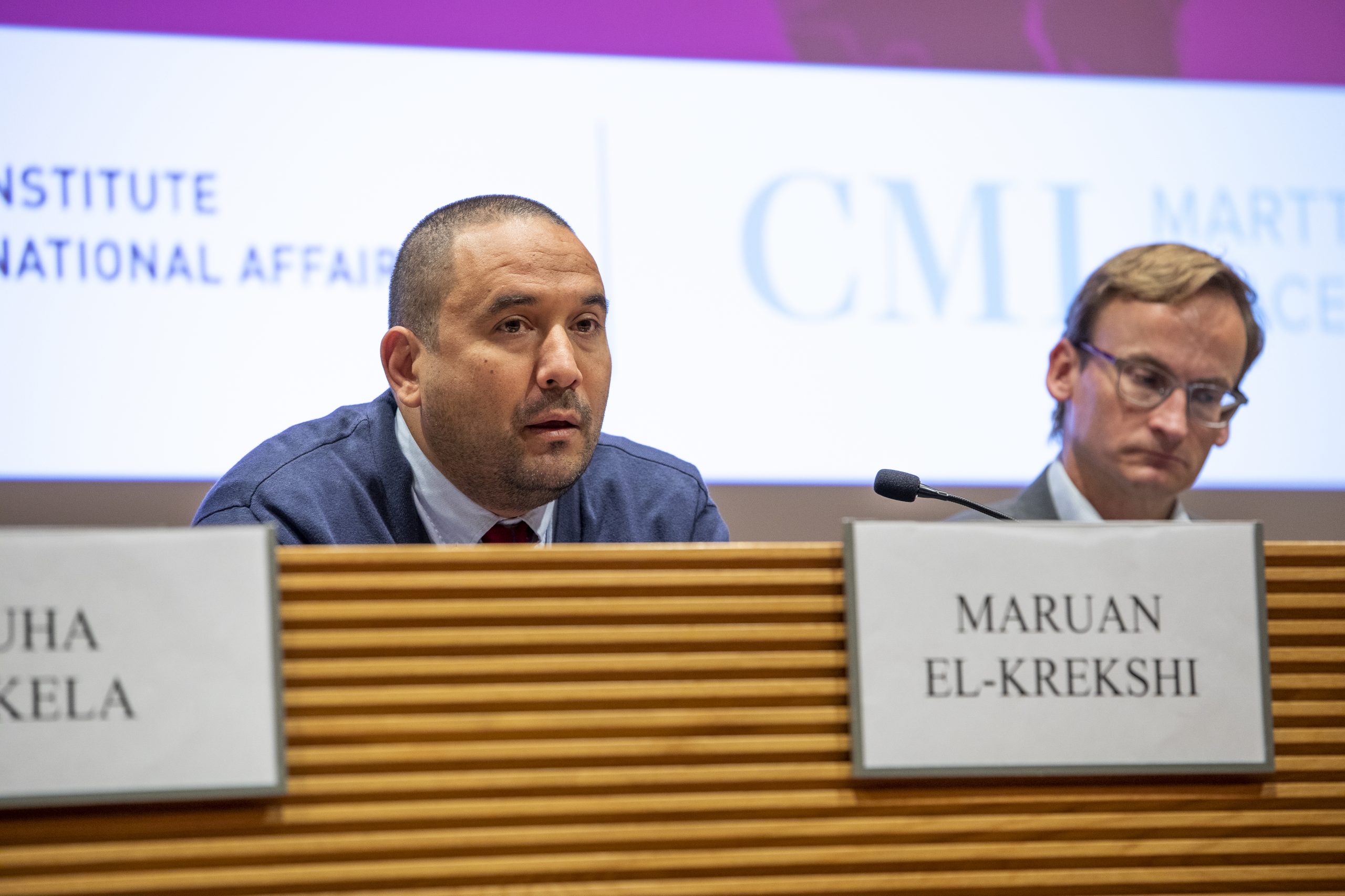Global implications of the Ukraine war underline the need to invest in peacemaking

CMI and FIIA organised a joint panel discussion at the Finnish Parliament on 5 September. Photo: Maria Santto / CMI
The Ukraine war impacts security and stability throughout the world, underlining the need to invest in efforts to resolve conflicts. CMI – Martti Ahtisaari Peace Foundation and the Finnish Institute of International Affairs (FIIA) held a joint seminar to discuss the global implications of the war in Europe.
In recent years, the international system has been in constant flux due to geopolitical rivalries. But the war in Ukraine has brought about an unprecedented and historic turning point for Europe’s security architecture.
The panel discussion titled “Global implications of the Ukraine war – A new turning point for peace and security?”, held 5 September, offered a variety of views on the topic. Tiina Kukkamaa-Bah, the Head of Sub-Saharan Africa, and Maruan El-Krekshi, the Head of Middle East and North Africa, represented CMI on the panel. FIIA’s Leading Researcher Sinikukka Saari and Research Professor Mikael Mattlin covered the viewpoint of Russia and China. The panel also included guest speaker David Lanz, the Representative for Dialogue Promotion at the International Crisis Group. The discussion was held at Parliament and was opened by MP Elina Valtonen.
The panel focused on the implications of the Ukraine war in various parts of the world. David Lanz noted that in certain regions the uncertainty and disruption created by the war had helped create a consensus among parties to other conflicts. In Nagorno-Karabakh and Venezuela, the war has even shifted the dynamic in favour of peace mediation. But Lanz did not think that this development will create lasting resolutions.
“All in all, the impact on global peace is negative.”
Lanz emphasised how increasing geopolitical competition and polarisation underline the need to support different peacemaking efforts.
“If we want to tackle conflicts, let’s invest in the capacity of those who work for peace.”
In some countries, the war encourages toughening attitudes. For example, China has recently shown signs of increasingly aggressive rhetoric towards Taiwan, noted FIIA’s Mikael Mattlin. He said that the war has also changed the dynamics between Russia and China.
“Russia is currently probably more reliant on China than ever before. Relations are almost the reverse of what they were between the Soviet Union and China.”

Tiina Kukkamaa-Bah noted that Horn of Africa is among the regions hardest hit by the food crisis caused by the war in Ukraine. Photo: Maria Santto / CMI
Different regions face similar problems due to the war. The food crisis is a common concern in most parts of the world. Economy, security of supply and geopolitical status impact countries’ capacity to tackle the problems created by the war. Among the areas hardest hit by the food shortage, is the Horn of Africa, said Tiina Kukkamaa-Bah. More on the war’s implications on the Horn of Africa can be read from the latest CMI Insight.
In the Middle East, the main impacts of the war are food insecurity and the steep rise in energy prices. Maruan El-Krekshi said that this complex region contains countries with very different backgrounds and political affiliations. As a result, each country is affected by the situation and resulting geopolitical rivalries in different ways.
“In terms of strategic partnerships, there are no major realignments at this stage, and the general trend in the Middle East is not to take strong sides on the Ukraine war.”

CMI’s Head of Middle East and North Africa Maruan El-Krekshi reflected on the implications of the war in the MENA region. Photo Maria Santto / CMI
Russia’s actions and its violations of international law and agreements have been condemned in the global arena. But not all regions see the war in black and white terms, said Sinikukka Saari. The war is a clear and outright example of Russia’s effort to challenge the Western-dominated world order, said Saari
This might appeal to countries who share a similar sentiment towards the West, Saari observed.
“Several countries see the Western reaction [to Ukraine war] as hypocritical. There is a feeling of a double standard.”
The viewpoints presented in the panel showed both global and local implications of the war on security, peace, and conflict. The impacts are likely to continue and will have far-reaching consequences.